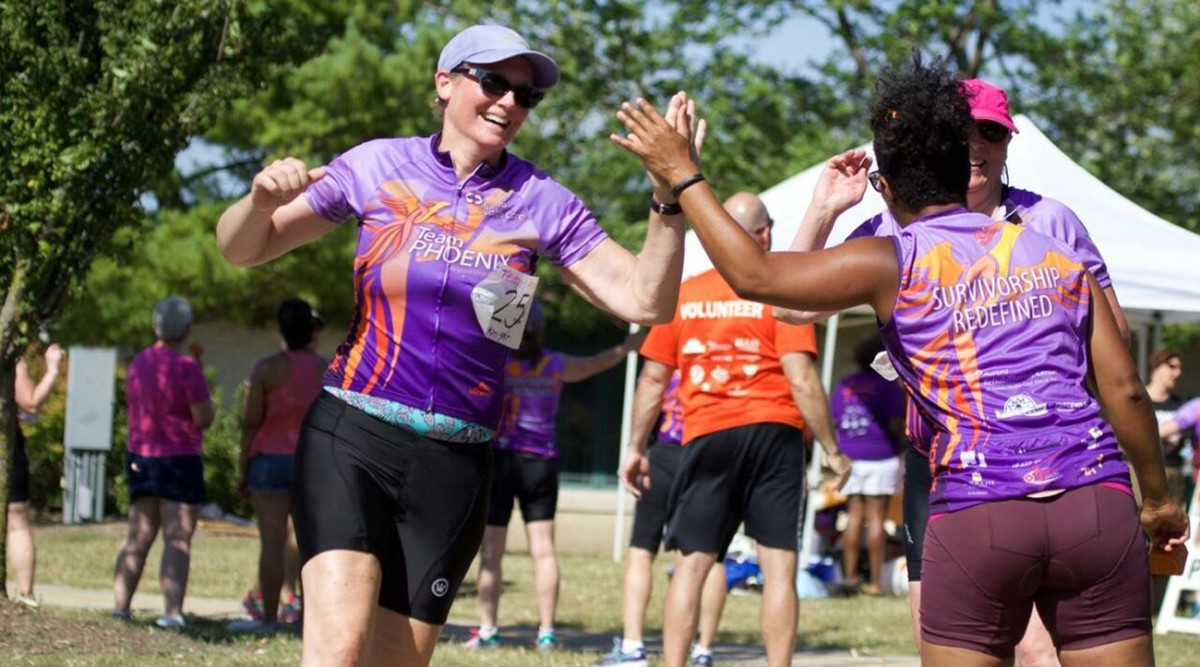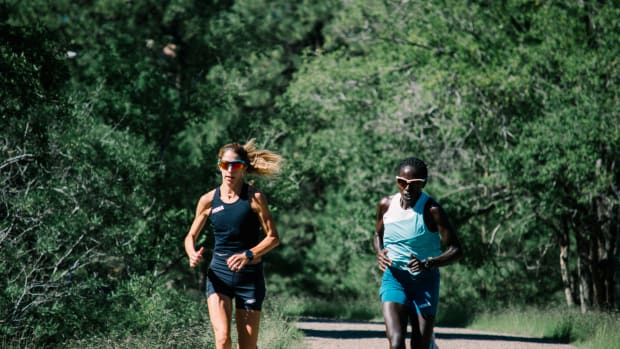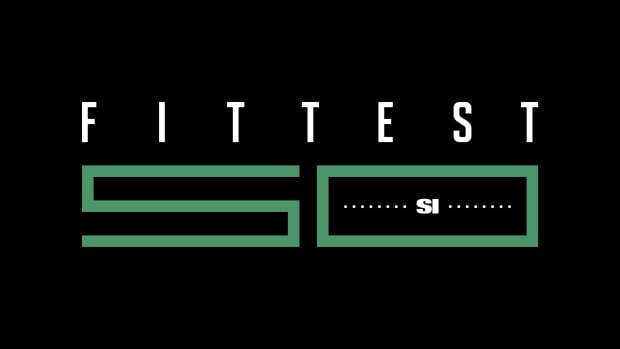Why Some Cancer Survivors Are Going From Treatment to Triathlon

This story appears in the June 3, 2019, issue of Sports Illustrated. For more great storytelling and in-depth analysis, subscribe to the magazine—and get up to 94% off the cover price. Click here for more.
Beverly Cooley, a 52-year-old college academic adviser in Milwaukee, likes to be active. Until recently that meant walking 60 minutes every other day and taking Zumba classes. But a triathlon? No way. (Especially because she just learned to swim.) How about the idea of attempting one a year after a cancer diagnosis? "I would've thought you were crazy!" Cooley says.
But it's not crazy. After her June 2018 diagnosis, Cooley was declared cancer-free in April, and this summer she'll become one of 250 women to have participated in Team Phoenix, an initiative founded in 2011 by Milwaukee's Aurora Research Institute that plunges female cancer survivors into a 14-week program to get them ready for a sprint triathlon—a 750-meter swim, 20-kilometer bike ride and five-kilometer run.
"Our job is not done just getting a patient through surgery or chemo or radiation," says Judy Tjoe, a breast oncology surgeon at Aurora Comprehensive Breast Cancer Center and the program's founder. "The reason for treatment is to give people a life. But it needs to be a good life."
Research shows that exercise may increase long-term cancer survival rates and decrease the risk of recurrence. Despite that, most don't adhere to the American Cancer Society's guidelines for exercise—at least 150 minutes of moderate activity a week—and even if they do, many stop three to six months after treatment is finished. But 85% of Team Phoenix members continue to exercise according to the ACS guidelines.
That was the case for Sue Knight, who was diagnosed with breast cancer in January 2014. The 51-year-old Milwaukee real estate agent enjoyed sports but, like Cooley, never contemplated doing a triathlon. She started training with Team Phoenix a few weeks after her treatment ended, even though she could barely walk up the stairs. But, slowly, the Team Phoenix staff built Knight's strength, and she finished the race. She then came back as a volunteer to help more survivors, and she's even persuaded her daughter to attempt the triathlon. "The camaraderie and sisterhood in the 14 weeks is amazing," Knight says. "That's what kept me going—so much encouragement and support."
Team Phoenix is not the only program of its kind. In 1995 a Canadian doctor started a club for dragon boat racing—an ancient Chinese rowing sport—in Vancouver. The International Breast Cancer Paddlers Commission now has festivals around the world, with partner organizations in nine countries, including the U.S.
For Cooley, the benefits of triathlon training aren't just physical. "You meet people and you don't have to explain a lot of things," she says. "We all have different types of cancer. But we all heard the words you have cancer. That bonds you."
When Cooley races on July 28, she'll have company: Knight plans to participate despite her cancer's recurrence. "It's important to get my body back," Cooley says. "It's shifting my mind from 'I'm trying to live' to 'I'm living life again.'"





